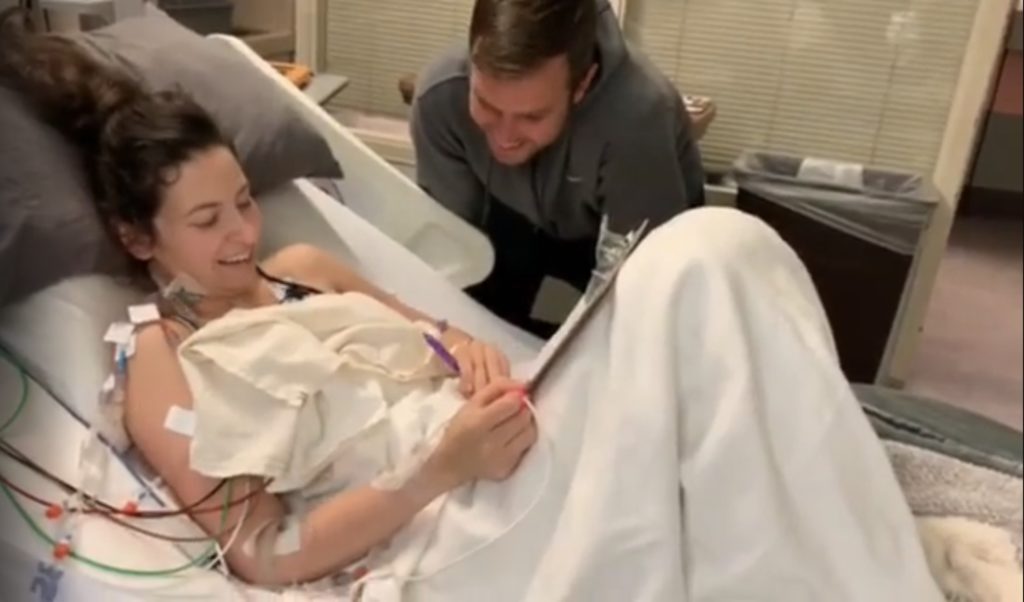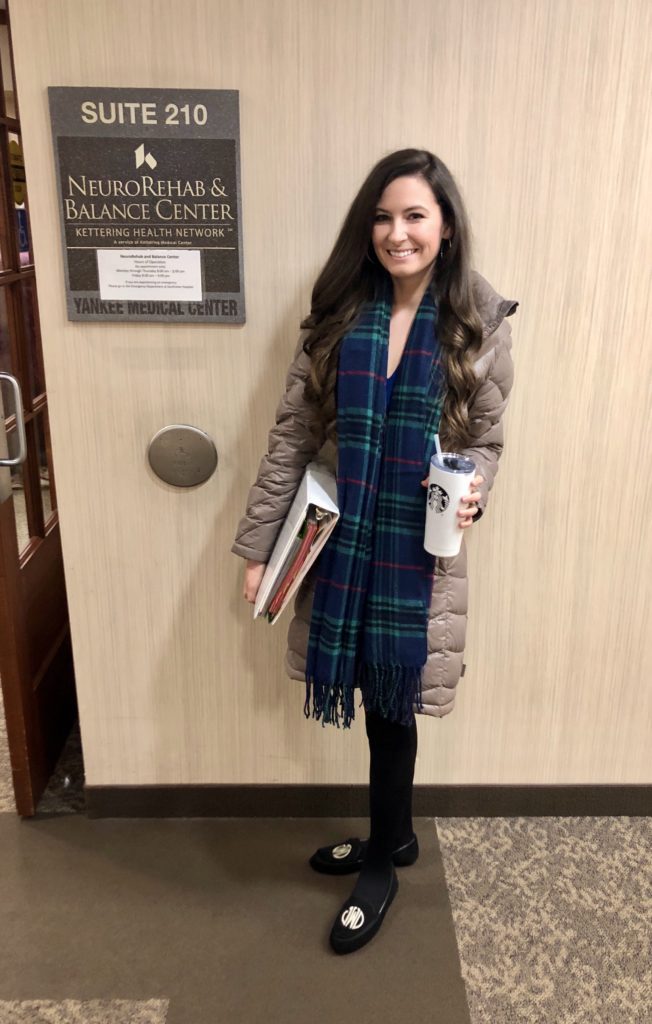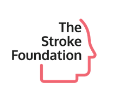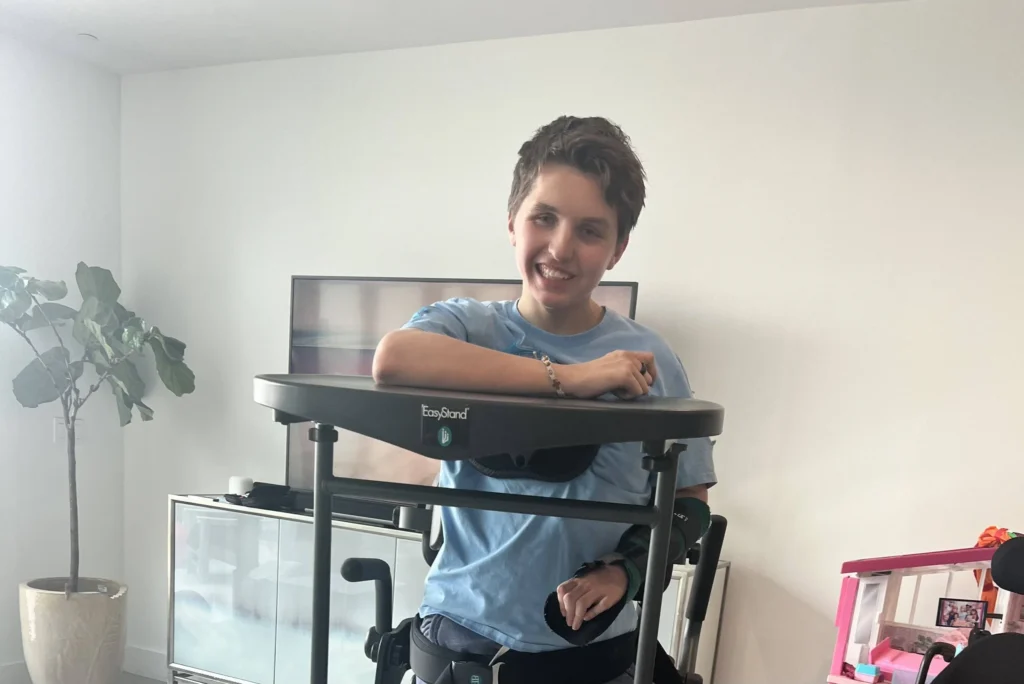It had been four days of an intense headache for Jeri. Sitting on the couch around 10pm, she was working on her laptop when her husband arrived. All of the sudden she heard a pop in her head — like a firework — lost her ability to speak, balance, and her vision was blurry. This lasted about 10 seconds, but Jeri knew there was something wrong and she needed help. She asked her husband to take her to the hospital but her words didn’t make sense and her speech was slurred.
At 30 years old, Jeri was having a massive stroke.
“We obviously didn’t know I was having a stroke. I did not know what the symptoms of a stroke were. I remember getting to the hospital and trying to type in my Social Security Number on the keypad — I saw the numbers, but they didn’t make sense. My brain was not understanding what 1 and 2 meant. It terrified me.”
In the hospital, a nurse took her blood pressure and vitals, and because of Jeri’s symptoms they ordered a CT scan. The scan showed multiple clots in the carotid artery in the prefrontal cortex. By this point, her speech was virtually unintelligible — like a baby learning how to speak. The hospital she was at was not equipped to do the surgery she needed, so Jeri was transferred to a Level 1 hospital where doctors did a 3-hour long thrombectomy to try and remove the blood clots.

Doctors were not able to remove all blood clots, and Jeri was left with significant aphasia, inability to move her entire body, and a very long and tough recovery journey ahead of her. Jeri had four more surgeries to clear her carotid artery as much as possible, spent a month in the hospital and then was released to go into intensive physical, occupational and speech therapies. 4 times a day, 5 times a week. She had to relearn everything.
“I’m a southern girl, so I used to have a very strong accent. But because I had to re-learn how to speak, I lost my accent! It’s weird listening to me speak before the stroke and now — I’m like a different person.”
If you hear her today, you wouldn’t know right away she struggles with aphasia. Jeri’s improvement has been incredible, and she now dedicates her time to working with government and nonprofit organizations regarding stroke transportation and advocating for patients and their caregivers. She is also Miss. Ohio International and uses her platform to raise awareness about stroke by sharing her story and reaching out to other stroke survivors through her “Stroke of Luck” platform.
“I also realized that my stressful work life was a major culprit — I didn’t pay attention to my body and what it was telling me, and I think if I had gone to the hospital on day one of my headache, or knew what the symptoms of a stroke were, then maybe my recovery would have been a bit different.”

As a stroke survivor, Jeri knows too well how invisible disabilities affect the way of life for many people. Besides the physical lingering effects of a stroke, some people also experience sensory processing disorders related to hearing, smell, taste, touch, or sight. For Jeri, noise is a daily challenge in her life — being in large crowds or loud places overloads her brain processing capacity, so Jeri uses noise cancelling earbuds to give her brain a bit of rest.
Another invisible disability she sought support with is Post-Traumatic Stress Disorder (PTSD). “I didn’t want to be alone because I felt like it would happen again. It took over my life and I really needed to find a way to help me regain the independence I needed to live my new life.” For Jeri, anti-anxiety medication and meditation helped improve her quality of life. Invisible disabilities after a stroke can look very different for every survivor, so it’s important to speak to your doctor, psychologist or mental health professional about what is affecting you and how you can improve your quality of life.
We asked Jeri: what is something you’ve learned about yourself due to your stroke?
“I now listen more than I talk. Although it was the most terrifying moment of my life, losing the ability to speak taught me to pay close attention to everything around me, to listen to my body in a different way, to slow down and appreciate what and who I have near me.”
Jeri calls her stroke a stroke of luck — it changed her life and got a chance to live her new life to the fullest.
P.S. from Jeri: if you’re having trouble with noise sensory overload, these earbuds and these earbuds might help!





